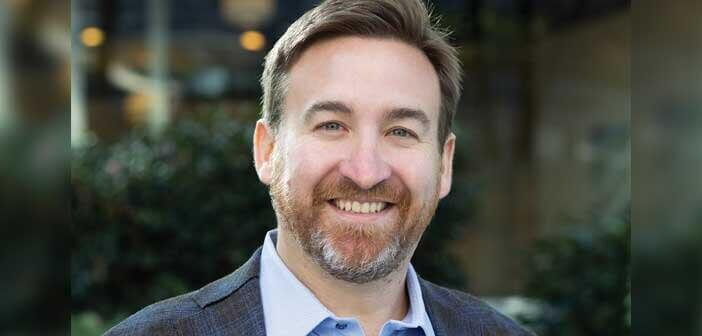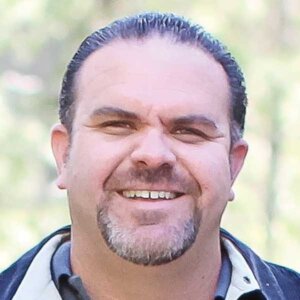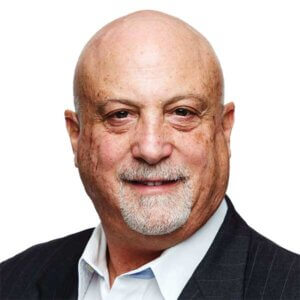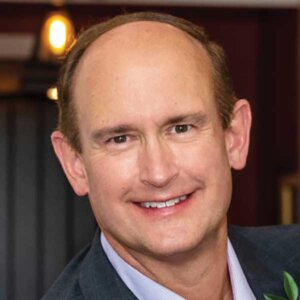Without a doubt, inflation and interest rates are constantly on the minds of lenders. However, after a tumultuous few years, business is showing signs of picking up. Debt is maturing and projects are resuming. Hotel Business spoke with Mathew Crosswy, president/principal, Stonehill; Chris A. Chiotis, principal/founder, Pacifica Capital & Brokerage Inc.; Geoffrey E. Davis, senior principal, Davis Hotel Capital Inc.; and Jay King, COO, Elevated Equities LLC, for their insight.
—Abby Elyssa
What were some of the high points for you this past year?
Crosswy: Stonehill continues to achieve record activity levels on our bridge lending and Commercial Property Assessed Clean Energy (CPACE) lending platforms. Bolstering our bridge platform is the fact that we are now separately managing an insurance company’s account, which provides us with a steady source of capital, creating an advantage over other balance-sheet lenders who are looking for liquidity in this market. In addition, with this source of capital, we can offer fixed-rate debt for transitional hotel assets with flexible prepay. We also added new senior leadership as Stonehill expands its commercial lending business. The new team, led by Daniel Siegal, has decades of real estate experience across numerous facets of the industry spanning multiple business cycles.
Chiotis: Here at Pacifica Capital, we had good success in placing fixed-rate purchase and refinance loans for many of our hotel clients in Q1, Q2 and Q3, making for a solid year. We also placed construction/permanent financing for many of our hotel developer clients throughout the U.S. While the balance of the year was strong, we are seeing that deal flow has cooled in Q4 as it appears borrowers, shocked by how fast rates have moved up, are proceeding cautiously to digest and plan their next move.
Davis: [High points include] closing some deals in a difficult capital markets environment and establishing equity and debt options for our clients, as well as bridge loan placements for acquisition and renovation/repositioning of non-performing assets, both full-service and select-service, and pref-equity placements for asset recapitalizations. Bridge loans are now at sofr+700 plus points, and pref equity is looking like a current pay of 9% to 12% with a look back to a 16% to 18% IRR.
King: We have enjoyed this past year of lending on a wide range of great transactions on a multitude of different property types from in the major cities to the resort areas in the mountains and on the coast. We have been truly blessed by our great borrowers.
What does lending look like in 2023?
Crosswy: As evidenced by the third and fourth quarters of 2022 with higher interest rates, the acquisition market turned to pricing discovery, resulting in transaction volume slowing. In addition, construction financing, faced with higher interest rates and increased costs, halted new starts. 2023 will continue the pricing discovery process, but capital markets will settle and lending activity will pick up, creating liquidity. However, it will be with an increased rate offset by lower values or lower leverage.
Chiotis: Financing will obviously be more expensive with the prime rate being at its highest point in more than a decade. While there will be plenty of lenders in the market, it will come down to the economics of a deal and if that particular deal can weather the pressure being placed on it by the current interest rate environment.
Davis: A difficult debt market will continue to make lenders more conservative in 2023. That said, there is still senior debt, mezz and pref equity available for the right deals. For hotel owners with maturing debt, refinancing those assets at par will be difficult and those owners will need to get creative with the capital stack to weather this current lending environment.
King: Since many of the major banks shut down their commercial lending in Q4 of 2022, I expect with the continued economic flux and Fed moves they will mostly be on the sidelines in Q1-Q2, slowly only funding the most stable of existing cash-flowing assets mainly in multi-family. This will continue to give firms such as ours plenty of business to fund commercial purchase, refinance, renovation and construction loans.
With inflation and interest rate spikes, how does ’23 look different than ’22?
Crosswy: In 2022, there were fewer lenders in the market, especially with the volatility in the capital markets and the resulting uncertainty and inability to price deals efficiently. That led to an excellent opportunity for us, given we fund everything off balance sheet. But sponsors’ business plans were more challenging to underwrite, given the cost of debt.
Chiotis: As the Fed continues with its aggressive move upwards in rates, we have begun to see market demand wane as the economics affecting debt service become much more challenging for both buyers and existing owners.
Davis: Hotel top-line performance remains robust, and that will continue. The challenges of capital costs, labor and other factors will continue to erode profits, but we see relief in the year ahead and a turnaround in market conditions in the second half of 2023.
King: As rates have risen, they are affecting sales and cap rates, thus skinny deals will be harder to get done, but equity can overcome that. Land and construction will be tougher, but we can still get those done.
What are you most looking forward to for 2023? Where are the opportunities?
Crosswy: It is estimated that $17 billion of CMBS loans are coming due over the next two years. Loans executed during COVID are maturing, and loan deferments are ending, creating the need for us to help sponsors finance, refinance or recapitalize their assets. Additionally, construction projects that have been on pause or value engineered to offset increased costs will be ready to start, given the lack of new supply.
Chiotis: It appears demand for hotel stays continues to be strong going into 2023. To be frank, we are looking forward to inflation stabilizing/declining as the Fed hopefully takes its foot off the gas pedal. There is opportunity for good quality assets and borrowers who find themselves with floating rate SBA financing to refinance their existing loans into a fixed-rate product. We are seeing, in many markets across the U.S., that post-acquisition values have appreciated enough to narrow the LTV gap that can typically adversely affect this type of restructure. We are actively working on similar assignments currently and are ready to help borrowers who have this need.
Davis: For hotel owners with good assets, who are not over-leveraged, it will be possible to ride out the current debt conditions and position yourself strong profits in the next two years.
King: As you know, bank rates are typically tied to prime plus 1% to 2.75%. So, with prime currently at 7% that makes our easier soft-money to hard-money rates as a private lender very attractive, especially with likely Fed increases causing prime to increase. So, we expect to see record volume in 2023 and would like to see hospitality at least a quarter of that.





